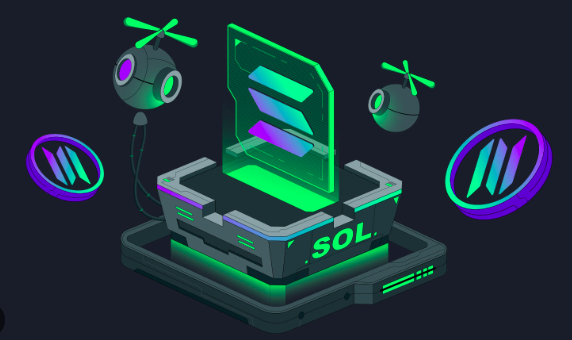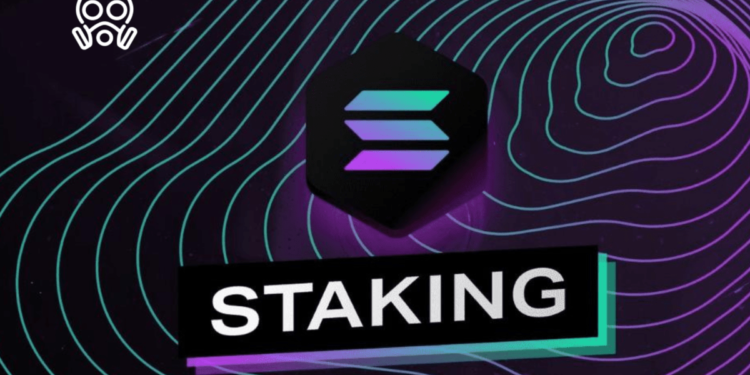Solana Staking is a means for anyone to engage in the security mechanism of the Solana blockchain, receiving network rewards in return. The Solana network locks up your tokens as collateral, ensuring the smooth occurrence of validations on the network.
The produced tokens are granted to the participant who validates the block and are added to the overall cryptocurrency supply. These rewards can be quite lucrative, and indeed, that’s the entire purpose of their existence – as an incentive for good behavior.
What if validators decided to exploit their power to create Solana blocks?
Simply, the Solana network uses slashing to control any negative behavior by the nodes. Slashing is a blockchain’s method of penalizing validators who behave poorly. Essentially, slashing involves a participant losing their staked SOL if the network determines they have acted maliciously. And slashing mechanisms in Solana are stringent: a participant can lose up to 100% of their stake. That means you can lose funds by delegating your assets to the wrong validator. If the validator acts in a suspecious way, it’s your assets on the line. That’s why it’s crucial to choose your validator wisely.
Methods of Staking Solana (SOL)

Now that you understand how to stake Solana, you might be wondering how to get involved yourself. Well, you can stake SOL in four primary ways: individual staking, and via centralized exchanges, delegating your funds to the validator, and pools. Let’s explore how these mechanisms function and how you can get started.
Individual Staking
Its also commonly referred to as native staking, involves independently staking by operating your own blockchain node. As an autonomous validator, specialized hardware is essential for validating transactions and staking your SOL tokens. Although there’s no minimum stake requirement to become a validator, validating blocks comes with a transaction fee of up to 1.1 SOL per day. Moreover, to efficiently validate transactions, specialized hardware is necessary.
Delegate Your SOL to a Validator
Delegating is an great way to gain rewards without buying complex hardware. However, validator-delegating brings a shared risk-reward method. Meaning, if the validator doesn’t comply with the network rules and standards, you run the risk of getting your stake slashed.
Centralized Exchange For Solana Staking
Staking via a centralized exchange essentially involves the platform staking your assets on the blockchain on your behalf. These types of exchanges either run the validator nodes on the blockchain, they or delegate the process to a trusted 3rd party. Subsequently, they transfer the rewards to you, deducting a small percentage fee. The majority of major centralized exchanges provide a user-friendly procedure to stake your cryptocurrencies through their Earn programs. However, it’s important to note that while making the process via a centralized exchange is widely preferred by beginners due to its accessibility, storing your assets on these exchanges is not entirely safe.
Pooled Method
Pooled method is a style to earn rewards by pooling SOL tokens collectively into a shared pool, managed by a designated validator. Rewards from the staking process go to the participants based on their contribution to the pool and, of course, the validator.
Liquid Staking
Under the Pooled umbrella, there is also the concept of liquid staking. To elaborate, liquid staking requires a pool to nitiate the process, but it adopts a more adaptable model, enabling stakers to employ their locked-up funds for various crypto activities. In brief, stakers obtain tokens that symbolize their portion in the pool, and these are tied to the value of the original asset. This implies that you can utilize these liquid SOL tokens throughout the Solana DeFi ecosystem, engaging in trading and lending activities.
In Conclusion
Staking Solana is one of the optimal ways to expand your exposure to Solana, one of the swiftly growing blockchain ecosystems. It allows you to get the best of both worlds and earn rewards without actively working for it. However, while staking can be really rewarding, always keep in mind: it’s not just about growing your assets only; it’s also about keeping them secure.












